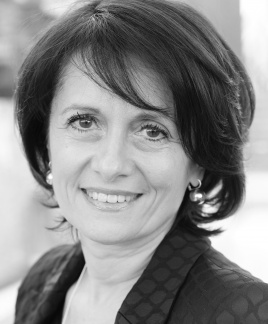Prevention and Diagnostic in Companies

ING Luxembourg's practice has been nominated for the 2015 Diversity Awards. Stéphanie Deitz, Diversity Coordinator, presents their prevention programme implemented in 2012. A project based on communication, training, mentoring and listening.
INTERVIEW
Sustainability MAG: Burnouts are often a taboo and a somewhat complicated subject within companies. How do you address the topic at ING Luxembourg?
Stéphanie Deitz: At ING, we look for a longterm balance between performance, satisfaction and well-being at work. Burnouts exist. This is why it is important to acknowledge it by breaking the taboo and trying to minimise the risk of breakdowns among our colleagues. We thus have taken our responsibilities and decided to talk about it, provide training and above all enable those who need to speak.
What concrete measures have you put in place? How are they applied to all the employees?
Our prevention program which includes communication, training, mentoring and listening, was put in place in 2012. Its foundations are layed by a charter signed by our Executive Committee. Information sessions to demystify burnouts are thus regularly organised and open to all. Our managers are trained to identify the warning signs and to adapt the way they communicate. Indeed, any employee who feels distressed can address our vigilance network, composed of colleagues that have been trained to listen and refer to a doctor if needed. Having someone to talk to in confidence is precious in that case. This network is composed of men and women who work in different departments, employees as well as managers, but also members of the staff delegation. They do not make a diagnosis. To do so, we work with occupational health (ASTF). It is indeed essential that a doctor evaluates and advises for the right assistance. He/she can then make a confidential prescription to people who are in the pre-burnout stage. If the employee breaks down, he/she will be directed towards the appropriate specialist for medical care and support through a coach will then be offered to facilitate his/her return.
Can you measure the impact of these actions?
Each person who does not break down is a success and this is what motivates us everyday in our proactive approach. It is difficult to measure all the results with figures; we indeed do not know all the cases of people in distress, especially because confidentiality is the cornerstone of our prevention programme. Our follow-up covers people who have spoken to a member of the vigilance network, whatever the reason that motivated them. We stay close to our employees who benefitted from preventive coaching and 4 years after launching the programme, we notice that over 90% of those who were supported by a coach did not experience any breakdown!

Stéphanie Deitz
Stéphanie Deitz est HR Account Manager et CSR & Diversity Coordinator chez ING Luxembourg depuis plus de cinq ans. Ses missions consistent à mettre en place une stratégie RSE et diversité en adéquation avec les valeurs d’ING.

In Luxembourg, the financial sector is particularly impacted by burnouts. What may be the reasons according to you?
Today, with NICT, employees are continuously asked to be more flexible, more productive, to stay connected and be subjected to constant monitoring. According to me, this situation is due to recent organisational changes in the financial field. Indeed, less people are employed to produce the same quantity of work. Another factor is the overload of administrative processes causing a loss in the sense of the original tasks. Finally, we are living in an individualist world where little recognition and lack of team spirit are intertwined.
The Phenix project dates back to 2011 to prevent and diagnose burnouts within ASTF member companies, how does it concretely work?
The Phenix project is a pyramid-shaped project for the hierarchy, management and employees. We try to break the burnout taboo through training and information sessions, communication and burnout management courses for the management as well as through advice and prevention for employees. This project is implemented through modules adapted to member companies’ needs and demands. Awareness and trust building are long processes and there is still a way to go, but, every year, we support more and more people.
To be read also in the dossier "The Burnout: breaking the taboo":


